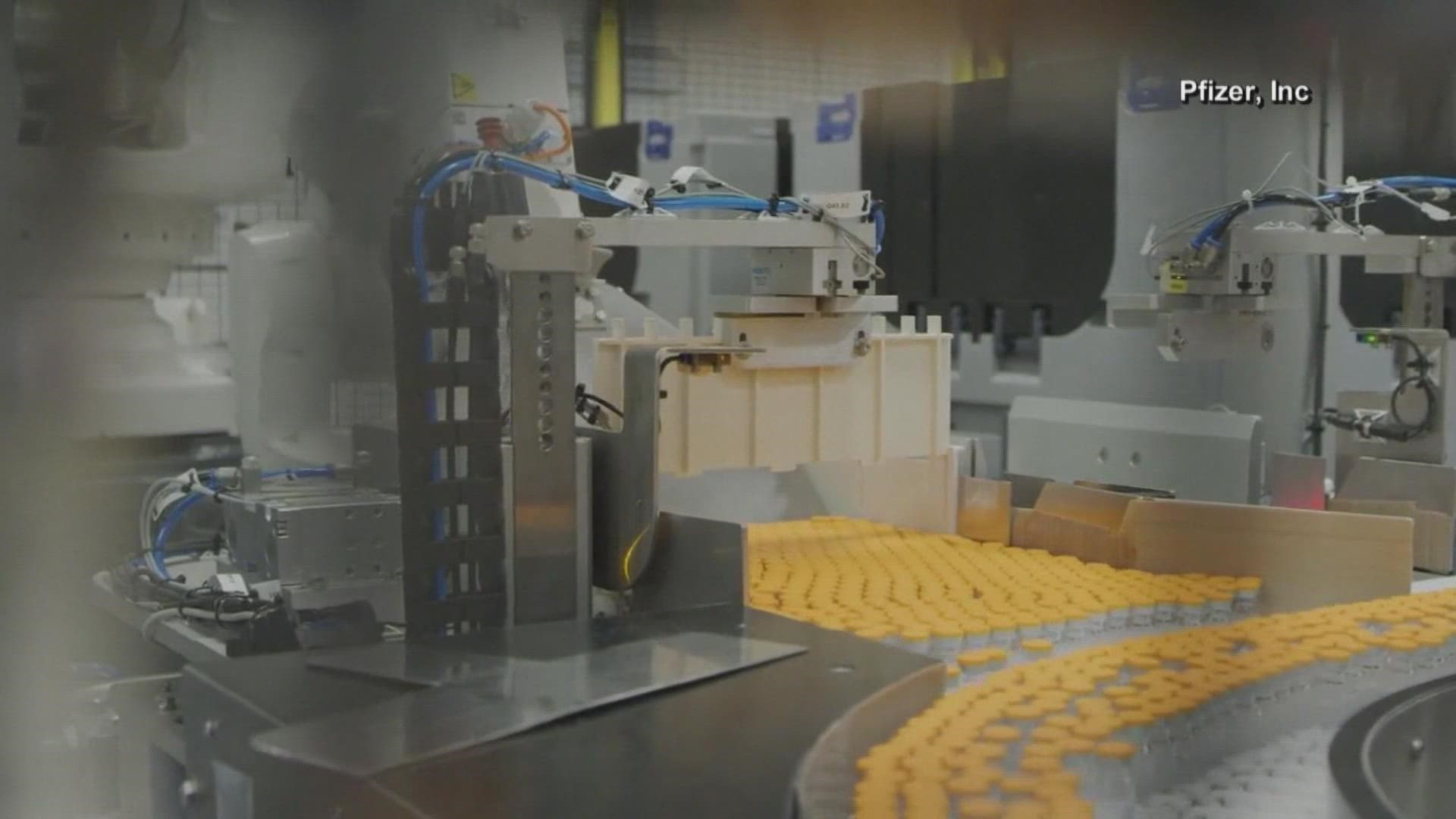DENVER — The final group waiting on COVID-19 vaccine eligibility could soon get access to the shot.
On Wednesday, an FDA advisory committee unanimously voted to recommend both the Pfizer and Moderna vaccines for the youngest children still waiting: the population younger than 5 years old.
Before vaccines can be distributed, they still need approval from the FDA and the director of the CDC. NBC News reports that decision is expected in the coming days.
9Health Expert Dr. Payal Kohli answered some commonly asked questions about the vaccine.
(Editor’s note: This interview has been edited for context and clarity.)
9NEWS: How does the vaccine for little kids differ from the one for adults?
Kohli: Moderna is a two-dose regimen, 25 micrograms per dose, which is one quarter of the adult dose, and it's given three weeks apart. And that’s for kids from 6 months to 5 years.
The Pfizer is a three-dose regimen. It's three micrograms, which is one-tenth of an adult dose. The first dose is given, then three weeks later the second dose is given, and then you actually have the next dose given eight weeks later. It's really important to keep in mind that’s not a booster dose – those three doses are actually the full vaccination. Without that, you're not fully vaccinated.
It’s the same vaccine we’re giving to adults. We’re just giving less of it. You need less to tickle a child’s immune system.
How effective are these vaccines?
Kohli: Protection varies depending on how old you are. If you’re older, your protection is actually a little bit less than the younger children.
With Moderna, what we’re seeing is an efficacy of about 37% against symptomatic infection against the omicron variant. That goes up to about 50% for younger kids, but still about one in two. For Pfizer, we're seeing an overall higher efficacy, overall about 80%, plus or minus a few percentage points for the kids.
The vaccine was built for the original variant. Now the omicron variant, we know, is really good at evading our immune system, and that’s partially why we’re seeing these lower efficacy numbers for our kids than adults. But even though it sounds lower than what we saw before, it's good protection for our kids. And the most important thing is – when it comes to preventing degree of illness, and minimizing how sick a child gets, and also potentially the symptoms of long covid, that’s where the vaccinations are really helpful, too.
What are the side effects?
Kohli: About one in four children have a fever, which is not unexpected after vaccination. We can have some arm pain, fatigue and some malaise. One thing that is notable, we did not see any cases – neither with Pfizer or Moderna – of myocarditis or pericarditis, which is that inflammation of the heart muscle that we worried about so much with our adolescent boys.
It took a while for the companies to make an effective vaccine for children this age. Why?
Kohli: I think there was a little bit of a loss of momentum, because this age group was lower risk. I think we were trying to find the right dose – and when it comes to doing clinical trials in our children, we want to be absolutely certain before we start giving experimental agents to our kids that it's something that’s completely vetted. So it took a while coming, but I'm really, really glad it's here now.
SUGGESTED VIDEOS: COVID-19 Coronavirus

